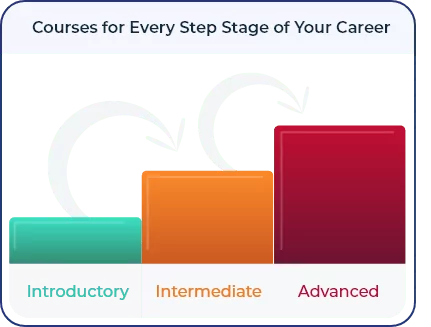To be eligible to sit the Project Management Professional (PMP)® exam, you need to be an experienced Project Manager. To ensure this, the Project Management Institute requires you to detail that experience in your application and randomly selects people for audit to ensure that this experience has been genuinely acquired.
On this page:
- Challenges Faced by PMP® Exam Candidates
- Strategies for Handling Unconventional PMP® Exam Questions
- Conclusion
Challenges Faced by PMP® Exam Candidates
However, the most effective way the Institute assures itself that you are experienced is by using scenario-based questions and by not giving you obvious answers. One of the essential skills for a Project Manager is the ability to deal with ambiguity. At the start of any project, uncertainty is at its highest. A Project Manager rarely embarks on any sort of project with the full facts. Given that work environment, anyone who aspires to being a PMP® should be able to deal with various shades of grey.
Sadly, some candidates for PMP® certification just cannot cope with the style of questions that the PMP® exam throws at them. In many cases this is due to being more familiar with other approaches to project management, such as PRINCE 2 or Agile. There seems to be a reluctance to embrace the Project Management Institute’s terminology or meaning.
We sometimes are criticized about our simulated PMP® exam questions because they are not clear or because they do not provide the correct answers. When we get this sort of feedback, we start to worry, because the PMP® exam candidate is unlikely to have the flexibility to interpret what a PMP® exam question is looking for.
Anyone who has sat the Certified Associate in Project Management (CAPM)® exam will have a much more straightforward time, because the CAPM® exam is purely a test of knowledge. However, the PMP® exam candidate is going to be tested on “what if” scenarios and will not have straightforward choices to make. For the PMP® novice, the two most frustrating aspects of the PMP® exam are questions where none of the answers appear correct and those where all (or at least more than one) appear plausible.
Strategies for Handling Unconventional PMP® Exam Questions
For example, you might get a question asking you for the output of the Develop Project Charter process. No problem – simply tick off Project Charter in the answers. But what do you do if Project Charter is not given? Some people refuse to go any further at this point because the right answer is not listed. They will insist that this question must be one of those “unmarked” ones because the right answer is not given. The potential PMP® holder will not be thrown by this. S/he will investigate each of the alternative answers and search for a component of the Project Charter among them.
Another example would be a scenario where you are asked what to do next. Say we are asked what to do next after the “Define Activities” process. Anyone who has been studying their PMP® course notes or been immersed in the Guide to the Project Management Body of Knowledge (PMBOK® Guide) will now look for “Sequence Activities” as the next process to carry out. Again, what happens if “Sequence Activities” is not given? Calm heads are needed at this point. Are there any other planning processes listed? Are familiar processes disguised in a descriptive sentence? You need to assess the given answers to determine if any of them precede “Define Activities” (they are obviously wrong) and then order the ones that occur after “Define Activities”.
The second curved ball that the PMP® exam question setters give us is the list of correct answers. You can prepare yourself for one of these by seeing “what is the BEST response?” A good rule of thumb here is to pick an answer that would apply in most circumstances – the most generic answer. But the key step is to take each answer and decide what it actually means. Do the answers map onto distinct processes? Do they describe specific tools and techniques? Do they relate to ethics in any way? In the end, you might have to opt for the “least worst” answer, rather than the best one.
A practicing Project Manager will rarely, if ever, have a textbook project to manage. Depending on the company s/he works in, the familiar PMP® artefacts may or may not be present, or present in different formats, or flying under different flags. The PMP® exam tests if you can adapt by using the scenario-based question format. If you aspire to becoming PMP® certified, this sort of question has to be dealt with.
Conclusion
Velopi’s PMP® exam preparation courses include unlimited access to our PMP® exam simulator. This contains nearly 2,000 PMP® exam style questions which will prepare you for the real thing. For more details on these courses, please visit our training page, or contact us directly.

















